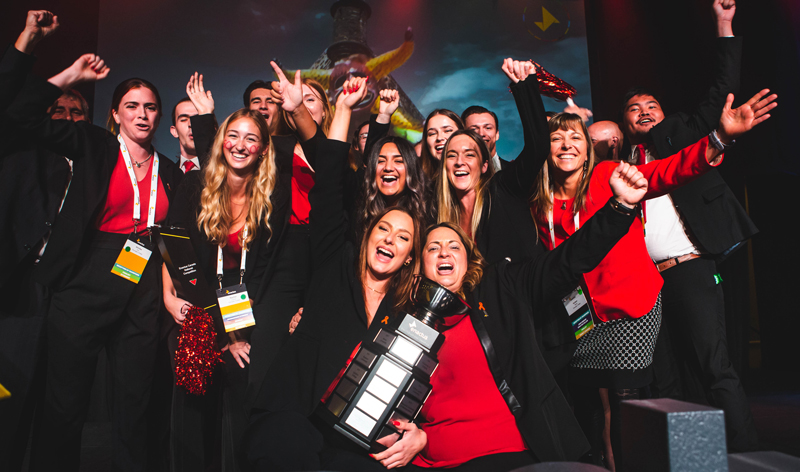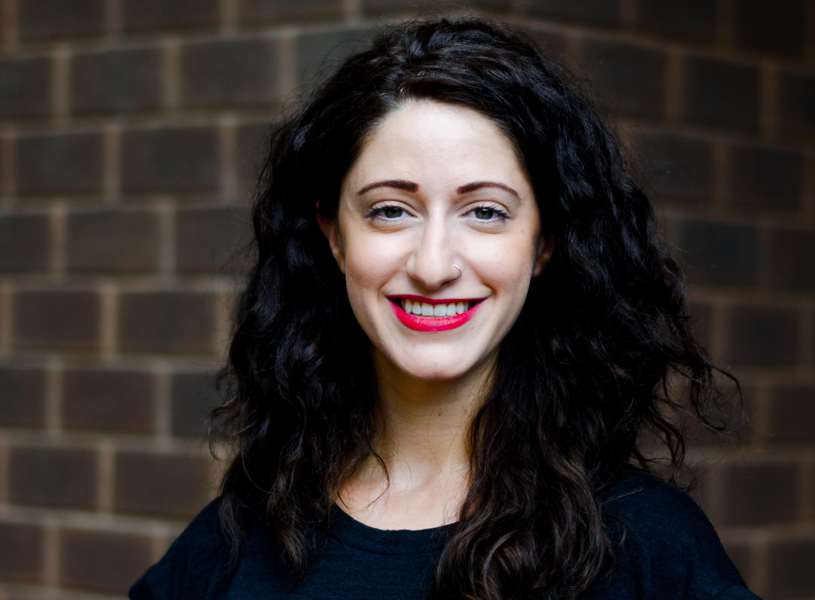Account Login
Don't have an account? Create One

Aryan Falke said he and other members of the Enactus team at Memorial University of Newfoundland (MUN) enjoy being part of something that’s not an entrepreneurship club. It’s a group interested more specifically in entrepreneurship with an impact on society, he explains, as clubs all over Atlantic Canada prepare for the Enactus Atlantic regionals in Halifax, March 2-3.
“I like being a part of a team that solves things, that looks for solutions to problems,” Falke said, in a recent interview with Atlantic Business Magazine.
Enactus is an international organization and encourages students to learn about entrepreneurship, but also think about the power of entrepreneurship in their communities, then challenges them to go out and actively try out nascent ideas. Local Enactus teams fund projects to test creative product and service ideas. Students then present and defend their projects in competition.

Now in his fourth year working on a Bachelor of Commerce degree, Falke admitted he was originally drawn to the club after hearing about the travel to regional, national and, in some lucky years, international expositions. Since joining, he said that’s been replaced by an excitement around the creative and collegial aspect, delving into projects and learning through project experience and feedback loops within the Enactus program.
Feedback comes to student clubs from faculty advisors. It also comes at the formal gatherings, where teams are judged by experienced business professionals and senior executives. The competition sessions are also buffeted by seminar-like sessions, skill-building, career fairs and networking. The teams are encouraged to take advantage of every interaction.
“It’s a complete package,” Falke said.

He added he is also involved in Enactus atop the demands of regular studies because it offers time with like-minded people, interested in creative solutions to both new challenges and nagging problems. “It’s less about just generating revenue and making money and it’s more about how feasible your solution is to that problem,” he said. Teams will do some market study, create business models and more, but there’s always that separate motivation.
During the peak of the COVID restrictions, Enactus Canada leaned on pitch competitions because teams didn’t have the same ability as in past years to go out into communities and introduce products and services and then put together presentations on that experience. However, the regular events are back. The upcoming regional events (in addition to Atlantic, there’s a Western regional in Calgary and a Central regional in Mississauga) will see teams go head-to-head in two competitive challenges. There is a “TD Entrepreneurship National Challenge,” involving students presenting and defending projects promoting entrepreneurship. They might, for example, be projects to improve skills in the community or help existing small business owners advance their businesses. There is also a “Scotiabank Climate Action Challenge,” where student teams will present on projects focused on promoting sustainability and responding to environmental concerns.
The 18 teams participating across the two challenges, involving more than 200 students and 30 academic leaders throughout the region, will be put through their paces by the judging panels, according to Enactus Canada vice-president Jennifer Falzon. After initial student presentations, there will be questions on the specific ideas, real potential, planned next steps and sustainability. There are always a few curve balls.

“It challenges them to think about it a little differently and even innovate on the spot,” she said.
For their part, Falke said Memorial members will present on their project R3d (“red”), the name being a nod to the old reduce, reuse, recycle in combination with 3D printing. It involves an idea to take waste plastic bottles, convert them into a 3D printer filament, where the filament can then be used to create products required, as a benefit to more isolated communities. A presentation for the entrepreneurship challenge will focus on a project aimed at helping to assure high school students transitioning into the workforce have basic practical financial education and financial literacy.
Winners of the regional Enactus competitions will go on to a national event in Montreal in May.
Projects coming through the Enactus program and out of competition sometimes have the potential to become exciting, new small businesses. A go-to example is EarthSuds. It started in 2017 as an idea of Wilfred Laurier University business student Marissa Vettoretti, who would team up with Daniel Moll to tackle the problem of plastic shampoo and conditioner bottles too small to be recycled. They brought chemistry students into the conversation, developing single-use tablets that readily crush, dissolve and lather in water, with the pressure of your hands. No plastic bottles were needed. They made tablets by hand on campus and, when ready for market, piloted the tablets under a partnership with the Hotel Laurier. As the Laurier Enactus team, the growing crew presented in competition and were able to say their project avoided an estimated 30 pound of plastic waste. They were talking with six other hotels about introducing the tabs. The project went on to eventually represent Canada at the Enactus World Cup, coming second. With help from LaunchPad at Laurier and the Accelerator Centre in Waterloo, a more established business was born. And in September 2021, with close to 40 students now contributing to the enterprise, reporting sales growth of over 20% month over month and in more than 70 retails stores, a deal was signed with a New York-based manufacturer to automate production.
Every success, regardless of where in Canada it emerges from, fuels the next crop of Enactus teams. “It’s pretty incredible as to what you can do,” Falke said.
Comment policy
Comments are moderated to ensure thoughtful and respectful conversations. First and last names will appear with each submission; anonymous comments and pseudonyms will not be permitted.
By submitting a comment, you accept that Atlantic Business Magazine has the right to reproduce and publish that comment in whole or in part, in any manner it chooses. Publication of a comment does not constitute endorsement of that comment. We reserve the right to close comments at any time.
Cancel